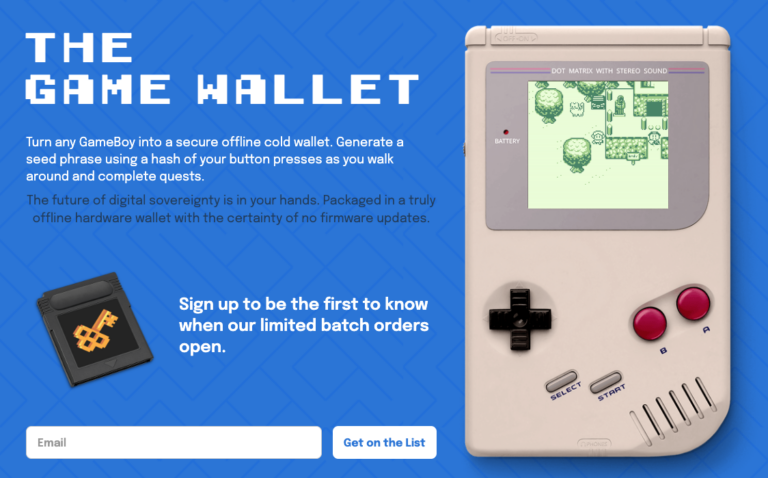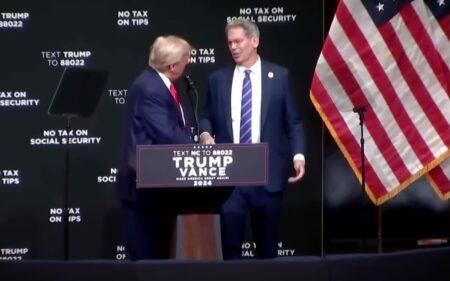In an extraordinary fusion of ’90s nostalgia and crypto-tech innovation, startup Keyp is transforming the iconic Nintendo Game Boy into a safe haven for digital assets.
In an article published on May 19, 2023, on GG, Decrypt’s gaming-focused news division, Kate Irwin explores the intriguing confluence of gaming nostalgia and innovative cryptocurrency security. Crypto startup Keyp is putting a fresh spin on the beloved Nintendo Game Boy handheld consoles of the ’90s, repurposing them as offline crypto storage devices. This playful yet practical gadget, known as the Game Wallet, is far from being a mere novelty item.
The Game Wallet is ingeniously designed to be a genuine Game Boy game cartridge. It introduces an element of gamification into the process of seed phrase generation, utilizing random quests and interactions with non-playable characters. This unique approach ensures that the product is more than a simple hardware wallet camouflaged by a Game Boy exterior.
Keyp’s design ensures compatibility with any cryptocurrency employing BIP-32 seed phrases. This means Bitcoin and Ethereum can be stored on the Game Wallet from the outset. Moreover, Keyp plans to release the software as open source, providing anyone with the necessary skills the opportunity to create their own variant.
Keyp founder, Joseph Schiarizzi, shared with Decrypt that the Game Wallet experience will resonate with fans of Pokémon-like games. “Game Wallet is a fun project [and] extension of that,” Schiarizzi said, speaking of Keyp’s mission to make Web3 accessible and safe for all users with social logins and added security layers for wallets.
Keyp’s team has been developing the Game Wallet since January and feels that recent concerns regarding Ledger’s new “recovery” service underscore the need for truly offline storage solutions. The Game Wallet is being promoted as a completely offline storage choice that ensures no firmware updates, a feature that is particularly appealing in the light of these concerns.
Reflecting on the Ledger hardware wallet update situation, Keyp co-founder Sascha Mombartz noted on a Game Wallet product page, “What started as a fun idea now seems to be a really important product.” Mombartz highlighted the inherent trust issues associated with new security devices, which may have been tampered with in the supply chain. In contrast, the provenance of a Game Boy from the ’90s is much clearer.
The Game Wallet is yet to have an official release date, but according to Schiarizzi, Keyp plans to launch pre-orders soon. A summer rollout is envisaged, subject to supply chain or technical difficulties.
This isn’t the first instance of the Game Boy being repurposed for cryptocurrency use, as Irwin points out. Two years prior, a pseudonymous IT security researcher had done the same, albeit in a slightly different manner.








